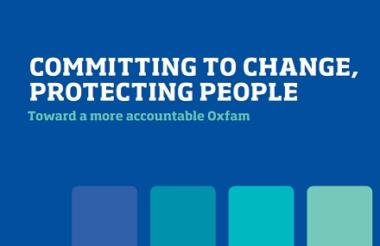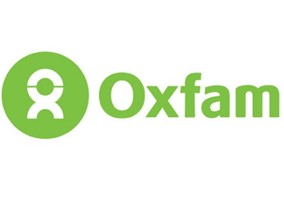The fallout from revelations of sexual misconduct among aid workers in Haiti in 2011 has been an unhappy experience for all involved, and it is clear that Oxfam is working hard to get back on track.
Not least, it has committed to a massive increase in funding for safeguarding and promised to fully implement the recommendations of the independent commission set up to review its practices.
But before we all move on, last month’s release of two inquiry reports about Oxfam is an important chance to reflect.
There has been plenty of focus on Oxfam’s failure to allocate sufficient resources to safeguarding. But as the scope of the independent commission’s inquiry indicated, this was as much about the culture in the organisation.
The wrong message
When the Oxfam country director at the heart of the allegations was allowed to resign in order to facilitate a “dignified exit”, it was not only a breach of staffing policies and procedures but it sent entirely the wrong message to anyone with a complaint about staff behaviour.
Indeed, almost half of respondents to a subsequent Oxfam staff survey said they believed that people who violated the charity’s values were not held to account.
They gave numerous examples of poor practice in dealing with people reporting or speaking out on sexual and other forms of harassment, citing “alleged terminations, discontinued contracts, intimidation, demotions, denials of promotions, withholding of merit increases, and other reprisals”.
There is also evidence that other cultural norms at the charity had gone awry. In a written submission, former Oxfam global safeguarding officer Bill Anderson told the International Development Select Committee that Oxfam had two overriding priorities in 2011: expanding services (sometimes described internally as “brand penetration” and “increasing market share”); and minimising risk.
On the latter, he wrote: “It took me a while to realise that some of my early conversations were at loggerheads.
“When I talked about risk it was about protecting the vulnerable, whereas most risk conversations in Oxfam were about reputational risk and how to protect the Oxfam brand.”
Now I would not wish to argue that the senior leaders which allowed this culture to flourish were bad people. Groupthink is powerful and people can find themselves indulging practices that with hindsight are unacceptable.
But equally, I’m not sure this can be written off as people struggling with the multitude of tasks in front of them.
It is clear that culturally Oxfam had diverged from where it ought to be in quite a significant way, and frankly, the need for a culture that doesn’t tolerate harassment is so basic and obvious that it is hard to excuse.
Looking forward
It should be said that Oxfam is not alone in facing these challenges. Save the Children and Amnesty International are just two other NGOs that have been forced to face up to a poor working culture.
Such problems may be just as commonplace in the private sector too – perhaps large charities are just like any other large organisation.
But whatever the scale of this problem across society, the fact is we are learning uncomfortable truths about a number of high-profile charities and NGOs. And they’re not alone – a recent survey by Acevo of the charity sector more generally found that among employees who had reported being bullied, just 3 per cent felt their complaint was handled satisfactorily.
I do have faith that Oxfam is genuine in its desire to change and is doing what is necessary. And I accept that these sorts of cultural problems take time to develop, and will take time to rectify.
But responsibility for ensuring a healthy working culture starts at the top and efforts must be ongoing.
|
Related articles













